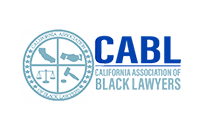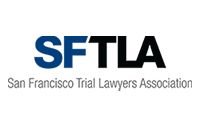
Here in California, our state’s anti-discrimination employment laws are some of the strongest in the nation. They not only offer the same protections federal law does to individuals belonging to certain classes but go above and beyond those, too. Below, we’ll discuss what laws protect employees from job discrimination in our state, so you’ll better understand your rights.
What To Know About the California Fair Employment and Housing Act (FEHA)
FEHA is one of the more important laws in terms of offering anti-discrimination protections for certain classes of workers in our state, including on the basis of:
- Gender and sexual orientation
- National origin, ancestry, race, or the color of your skin
- Sex (which includes pregnancy and related health conditions)
- Veteran status
- Marital status
- Religion
- Age (particularly for those aged 40 and up)
- Disability or medical condition (including physical and mental and use of cannabis)
- Victimhood (such as stalking, assault, or domestic violence)
This state law is one that almost any California company that employs five or more workers or any number of federal ones must abide by.
Understanding Specific Protections Aimed at Protecting California Employees from Discrimination
The State of California Department of Industrial Relations maintains a fairly extensive list of labor codes that, if violated, may lead employers in Hayward and elsewhere throughout the state to face anti-discrimination lawsuits. Some of the standout scenarios in which that may occur include:
Criminal-Related Protection Offered to Workers
California Labor Code Sections 230 and 230.1 were updated in 2020 after Assembly Bill (AB) 2992 was signed by Governor Newsome. That update made it illegal for employers to discharge and discriminate or retaliate against employees who are crime or abuse victims who need to take time off from work to either attempt or actually receive “relief.” At the time those conditions were added to the California labor law, it was already illegal for employers with employees who needed to serve on a jury or appear in court pursuant to a subpoena, for example.
Wage Disclosure and Work Conditions Disclosures
Labor Codes 232 and 232.5 make it unlawful for employers to discharge or retaliate against workers who disclose their wages or work conditions and from having workers sign documentation, so they don’t do this.
Discretionary Sick Leave Use
Labor Codes 233 and 234 specify that California employees have wide discretion about how to use their accrued sick leave and how employers who attempt to control their use of that sick leave by using disciplinary action such as a demotion, suspension, or discharge in responding to absences is illegal.
Reporting a Worker’s Immigration Status
California Labor Code 244 describes how employers cannot make threats to or actually report a prospective, former, or current employee’s perceived or actual immigration status to any government agency and how, if they do, this may constitute adverse action (discrimination).
Using an Applicant’s Past Pay History to Dictate Current Compensation
Employers cannot allow how much a worker states they previously made in other roles to affect the extent of an employment offer to an applicant, nor can they allow that history to dictate any salary they offer as compensation to that individual per Labor Code 423.3.
Conditioning the Offer of Employment on Waiver Status
It’s unlawful under California Labor Code Section 432.6 for an employer to condition their employment offer to an applicant based on their receipt of certain types of benefits.
Prohibition on Asking About or Factoring in Non-Convictions in Employment Decisions
Our state’s LC 432.7 spells out how it’s unlawful for employers to force applicants to make any disclosures about previous non-conviction arrests or their participation in pre-trial diversion programs or sealed or judicially dismissed cases.
Verification of Applicants and Re-Verification of Current Employees
Various sections of California labor laws, such as section 1019, outline that employers are prohibited from engaging in unfair immigration-related practices, including having suspected immigrant employees submit additional documentation or undergo additional E-verify scrutiny than what is lawfully required.
Other sections of this code and also LC 1024 describe how employers who request additional work authorization documents, re-verify employment eligibility of existing employees, use consumer credit reports against and use changes of name and Social Security numbers, and secure federal work authorizations to discharge or retaliate against employees is unlawful.
Providing Reasonable Accommodations
The following state labor codes address an employer’s requirement to offer reasonable accommodations in certain situations, including to workers:
- Needing to participate in a drug or alcohol rehabilitation program (LC 1025-1028)
- Who are moms that are looking to express milk for their infant child (LC 1030-1033)
- Looking to enroll in adult literacy programs
Political-Oriented Discrimination
It’s unlawful under LC 1101 and 1102 for employers to inhibit their employees from running for political office or trying to exert any control over their workers’ political affiliations.
Refusals To Work in Excess of a Worker’s Established Schedule
Labor Code 1171 disallows employers from having their employees work overtime if they have a valid reason for not doing so. Additionally, LC 1198.3 makes it so that employers who discharge or retaliate against workers who refuse to work in excess of the ones our state’s Industrial Welfare Commission allows them to do may face administrative or legal action for doing so.
Other sections of the code, other than the ones mentioned above, also make it so that employers may be held liable if they subject employees to adverse treatment (i.e., discrimination or retaliation) who:
- Take part in national service organizations like AmeriCorps (LC 1171)
- Request a leave of absence for organ or bone marrow donations (LC 1512)
- Fail to meet work quotas in their warehouse role without taking mandated rest periods (LC 2102)
- Have been threatened with or actually have their wages garnished (LC 2929)
- Makes a complaint or testifies about workplace health and safety conditions (LC 6310) or refuses to perform certain hazardous work (LC 6311), including moving or lifting patients without proper equipment or support of other colleagues (LC 6403.5) or potential child welfare issues (LC 1596.881 and 1596.882)
- Inquires about their Unemployment Insurance or Labor Code rights (LC 1237)
- Employees who express opinions about alternative workweek schedules
As you likely realize, special conditions and exceptions to these codes apply. Additionally, these codes are constantly evolving, meaning they could be added to include additional conditions at any point.
When Is Employment-Oriented Discrimination Unlawful in California?
Employers are prohibited from discriminating against both prospective and actual employees. In other words, they cannot engage in discriminatory practices at the following stages in the employment process:
- Hiring
- Promoting or transferring
- Assigning to certain work roles
- Providing training opportunities
- Deciding on compensation or benefits
- Firing
If you believe that a prospective or actual employer allowed your belonging to one of the above-referenced protected classes to dictate whether you were hired for a role, how you were assigned certain job tasks, provided with advancement opportunities, how you are compensated, or you’re let go from your job, reach out to us at Varlack Legal Services. Additionally, consider contacting us if your prospective or actual employer violated any of the California labor laws above or if you suspect they violated the many others that exist that are not listed above.
When you reach out to us, we’ll put you in contact with one of our employment attorneys who regularly handles job discrimination cases. They’ll want to know what happened to you before advising you of your legal options.








